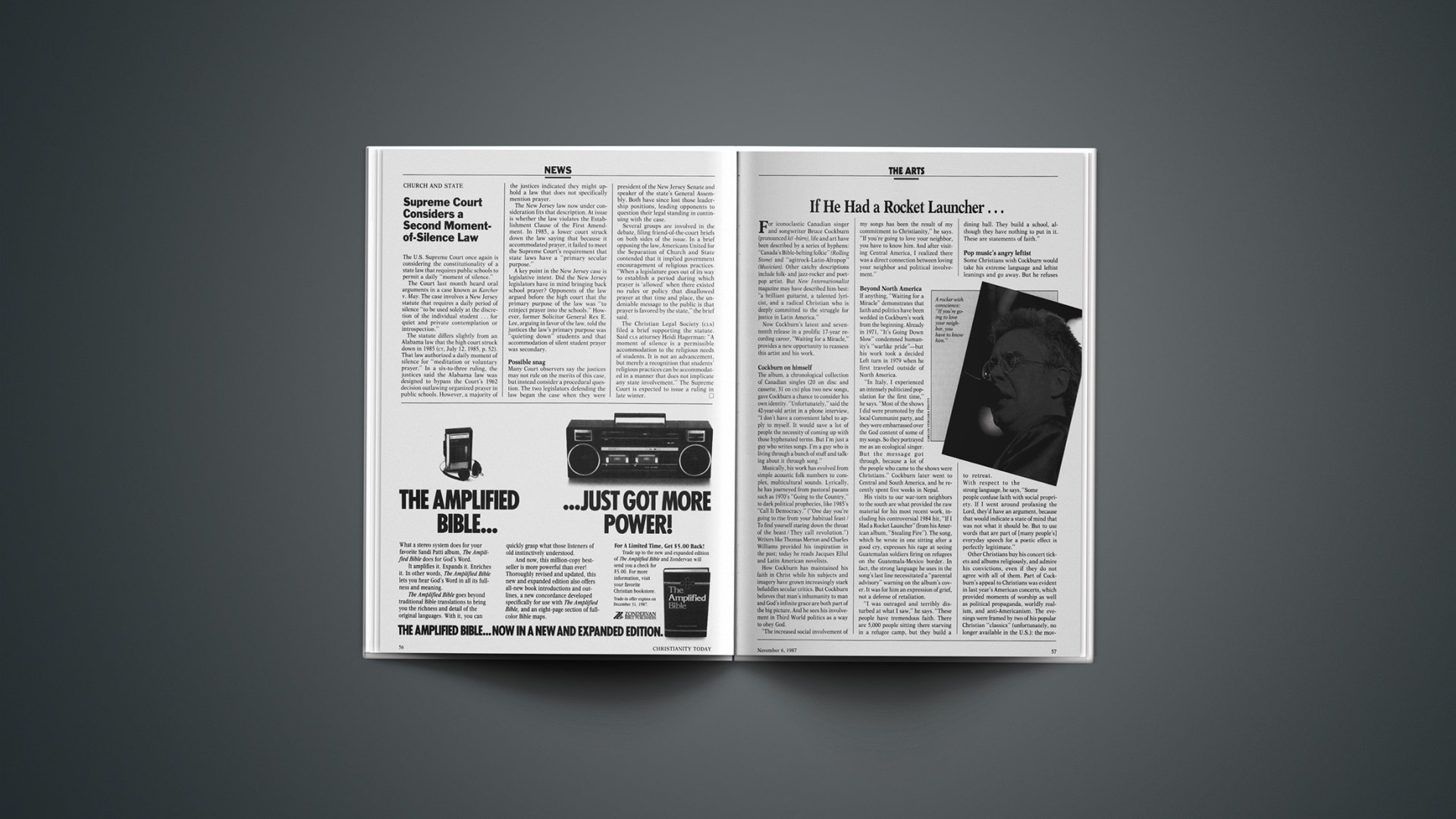The U.S. Supreme Court once again is considering the constitutionality of a state law that requires public schools to permit a daily “moment of silence.”
The Court last month heard oral arguments in a case known as Karcher v. May. The case involves a New Jersey statute that requires a daily period of silence “to be used solely at the discretion of the individual student … for quiet and private contemplation or introspection.”
The statute differs slightly from an Alabama law that the high court struck down in 1985 (CT, July 12, 1985, p. 52). That law authorized a daily moment of silence for “meditation or voluntary prayer.” In a six-to-three ruling, the justices said the Alabama law was designed to bypass the Court’s 1962 decision outlawing organized prayer in public schools. However, a majority of the justices indicated they might uphold a law that does not specifically mention prayer.
The New Jersey law now under consideration fits that description. At issue is whether the law violates the Establishment Clause of the First Amendment. In 1985, a lower court struck down the law saying that because it accommodated prayer, it failed to meet the Supreme Court’s requirement that state laws have a “primary secular purpose.”
A key point in the New Jersey case is legislative intent. Did the New Jersey legislators have in mind bringing back school prayer? Opponents of the law argued before the high court that the primary purpose of the law was “to reinject prayer into the schools.” However, former Solicitor General Rex E. Lee, arguing in favor of the law, told the justices the law’s primary purpose was “quieting down” students and that accommodation of silent student prayer was secondary.
Possible Snag
Many Court observers say the justices may not rule on the merits of this case, but instead consider a procedural question. The two legislators defending the law began the case when they were president of the New Jersey Senate and speaker of the state’s General Assembly. Both have since lost those leadership positions, leading opponents to question their legal standing in continuing with the case.
Several groups are involved in the debate, filing friend-of-the-court briefs on both sides of the issue. In a brief opposing the law, Americans United for the Separation of Church and State contended that it implied government encouragement of religious practices. “When a legislature goes out of its way to establish a period during which prayer is ‘allowed’ when there existed no rules or policy that disallowed prayer at that time and place, the undeniable message to the public is that prayer is favored by the state,” the brief said.
The Christian Legal Society (CLS) filed a brief supporting the statute. Said CLS attorney Heidi Hagerman: “A moment of silence is a permissible accommodation to the religious needs of students. It is not an advancement, but merely a recognition that students’ religious practices can be accommodated in a manner that does not implicate any state involvement.” The Supreme Court is expected to issue a ruling in late winter.










